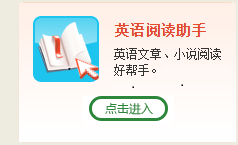一般疑问句
一般疑问句的结构是将助动词、情态动词或系动词be 移到主语之前。 回答句子时通常要用yes 或 no 来回答。
1. 一般疑问句的的句型
1)系动词 be + 主语 + 表语
Am I wrong again? 我又错了?
Is it your bicycle? 这辆自行车是你的吗?
2)助动词 be + 主语 + 动词
Is she badly injured? 她伤得重吗?
Are the children always asking questions? 这些孩子总好提些问题吗?
3)助动词 have + 主语 + 动词
Have you been to Beijing before? 你以前去过北京吗?
Has your mother arrived? 你妈到了吗?
4)动词have + 主语 + 宾语
Have you money with you? 你身上带钱了吗?
Have you got some change in your pocket? 你兜里有零钱吗?
5)助动词do + 主语 + 动词
Does she swim very well? 她游泳游得好吗?
Did you tell her the truth? 你向她说了实话吗?
6)will + 主语 + 动词
Will you do that for her? 你愿意替她做那件事吗?
Will they come to the party tonight? 他们今晚会来参加聚会吗?
7)情态动词 + 主语 + 动词
Can she drive? 她会开车吗?
Shall we go now? 我们现在走吗?
Must I return the book tomorrow? 我明天必顺还书吗?
8)There be 句型的一般疑问句
Is there any water left in the cup? 杯子还有水剩下吗?
Are there any books on the desk? 桌上有书吗?
Will there be a meeting tonight? 今晚有会吗?
Is there going to be any activity tomorrow? 明天有什么活动吗?
Were there many people at her birthday party? 她的生日宴会来了很多人吗?
2. 一般疑问句的否定形式
1)通常把not放在主语之后。这时提问人多带有否定意向,并期待一个否定的回答。
Is he not a doctor? 难道他不是一名医生吗?
Will he not go to school today? 他今天不上学吗?
Could the students not understand it? 学生们听不懂吗?
2)在主语之前采用简略式n't。 用来表示惊讶、怀疑、不满等。有 “难道不…?” 之意。
Isn't your sister a teacher? 你的姐姐不是老师吗?
Don't you think it is a good idea? 你不觉得这是个好主意吗?
Won't you sit down? 你不想坐下吗?
Hasn't she heard of the matter? 她没听说过这事儿?)
注: 这种疑问句的否定结构的回答与汉语的习惯不同。如果回答是肯定的,就用“yes+肯定结构”;如果回答是否定的,就用“no+否定结构”。(情况与反意问句类似。)如:
Can't he answer that question? 他不能回答那个问题吗?
—Yes, he can. 不,他能回答这个问题。)
—No, he can't. 是的,他不能回答这个问题。
3. 一般疑问句的回答
一般疑问句通常用简略形式来回答。
Is this your pen? (这是你的笔吗?)
— Yes, it is. 是的,是我的。
— No, it isn't. 不,那不是我的。
Are you a teacher? 你是一位老师吗?
— Yes, I am. 对, 我是。
— No, I am not. 不,我不是。
Am I wrong again?
— Yes, you are。是的,你又错了。
— No, you aren't. 不,你没错。
Can he speak French? 他会说法语吗?
— Yes, he can. 是的,他会。
— No, he can't. 不,他不会。/
Do you like English? 你喜欢英语吗?
— Yes, I do. 是的,我喜欢。
— Yes, very much. 是的,非常喜欢。
— No, I don't. 不,我不喜欢。
Will you join us in playing basketball? 你加入我们打篮球好吗?
— Yes, we will. 是的, 我们会。
— No, we won't. 不,我们打算加入。。
Has he finished his home work? 他完成作业了吗。
— Yes, he has. 是的,他完成了。
— No, he hasn't. 不, 他还没完成。
Have you any difficulties with your study? 你学习有困难吗?
— Yes, I have. 是的,有。
— No, I haven't. 不,没有。
Have you got today's newspaper? 你有今天的报纸吗?
— Yes, I have. 是的,有。
— No, I haven't. 不,没有。
在实际应用中, 一般疑问句也可有灵活的回答。
Is he very ill? 他病得厉害吗?
— I am afraid so. 恐怕是。
Will it rain tomorrow? 明天会下雨吗?
— I hope not. 希望不会。
Can you help me? 你能帮我吗?
— Sure! 当然!
下一篇: 特殊疑问句




